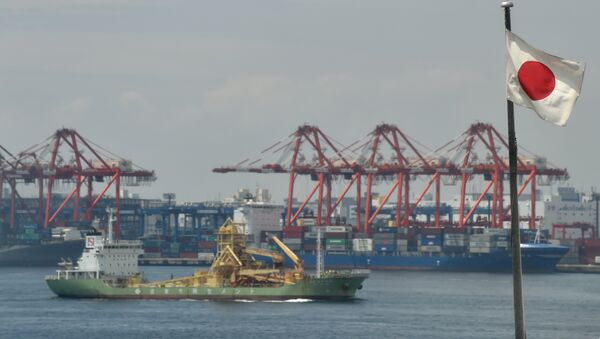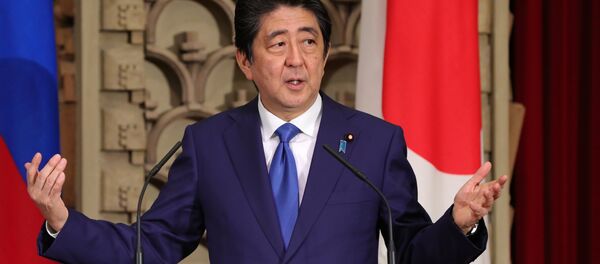He also raised hopes that London and Brussels would avoid a disorderly Brexit and that the impact on Japanese businesses will be minimal. Radio Sputnik discussed the issue with Dr. Victor E. Teo, an assistant professor at the Department of Japanese Studies at the University of Hong Kong.
Victor E. Teo: This is a very interesting development. I’m not sure if Prime Minister Abe has taken the time to consult with the ten other members. As you said, the United Kingdom is the only country without a geographical location in the Pacific; this makes the UK’s case very unique.
The second thing is that it’s not entirely clear how the Brexit deal would actually affect TPP membership, although Prime Minister Abe has made it very clear that Japan would actually prefer the UK to have some sort of a deal before it tries to join the TPP.
Sputnik: What about the timing? 8 years of negotiation is not a small amount of time. There were some re-negotiations after Donald Trump pulled the US out of that deal. Coming to the table this late and with so much uncertainty, how would London be viewed by the remaining members?
Victor E. Teo: I think that at a very fundamental level, the TPP is a trade bloc. Although it was initially conceived by Japan and the US as a Pacific trading bloc, I think that having the UK join the TPP might not actually be a bad thing, particularly after the withdrawal of the US.
For one, I think the presence of the UK might lend some counterweight to the Americans leaving, meaning that it could compensate, at least in part, for the vacuum that the US has left behind. Secondly, the TPP is actually a more viable trading organization; and it’s not going to be the first time that the UK has had a partnership with Japan.
Also, right now the UK is actually getting onboard the “One Belt, One Road” initiative in a big way; and so, what Prime Minister Abe is trying to do is to alleviate some of the tensions it might have by inviting the UK to join the TPP.
Sputnik: I believe that members of the TPP currently account for just 8% of British exports and, of course, the biggest destination for UK goods and services in that group is Japan, which is why, I would imagine, that Japan would be interested. Do you see an opportunity for a significant amount of growth in British exports to other TPP countries post the UK joining? Because it’s only 8% of British exports; if we compare that to the European Union, that’s significantly less and it wouldn’t really fill the vacuum of Brexit.
Victor E. Teo: It wouldn’t, but I’m sure that Prime Minister [Theresa] May or the British exporters would appreciate this opportunity, because all of a sudden, here we are, we have another 11 or 12 export destinations for British goods.
It’s a small part to fill the vacuum, but it actually signifies the potential to grow. Secondly, given that the US is in a trade war with China, this might actually be a good time to build on the TPP.
So, there are opportunities to grow, it’s a new avenue for British exporters. Something is always better than nothing.
Sputnik: What are your thoughts on how much leverage the UK would actually have, if it were to come to the negotiating table now? It would seem like a lot of countries wouldn’t want to reopen some of the more sensitive issues that they’ve been working out for the past 8 years.
Victor E. Teo: For sure. But, as I said, this is not quite discussed by the Japanese with the rest of the TPP members. As I said, this is a trade bloc and a trade bloc naturally looks to open itself to countries with similar backgrounds and a certain level of market maturity.
I think that Great Britain actually fits the bill. And to the extent it has good relations with Australia, Brunei, Canada, Chile, Japan, Malaysia, New Zealand, Peru and Singapore, I don’t think that there would be any TPP members that would be very bent on keeping the UK out; it’s one additional market and an additional opportunity for the 11 of them.
Given that the economy is compatible, I don’t think that the TPP members would actually say that the British can’t join because of A, B, C or D. The only significant thing is the geographical location of Great Britain — it’s not actually part of the Pacific
Views and opinions expressed in this article are those of Dr. Victor E. Teo and do not necessarily reflect those of Sputnik.





